Science in Action
The summer school ‘Science as a Form of Life’ has come to an end.
Dedicated to anthropological research on science, it included an empirical stage where the students studied theoretical aspects of research on laboratory life and tried out the method of participant observation watching scientists work at the Kaybasovo scientific research station in the floodplain of the Ob River. It has been the first STS school held in Tomsk so far. In total, there have been three STS schools carried out in Russia, however all the three dealt with theoretical and methodological issues and did not include field research.
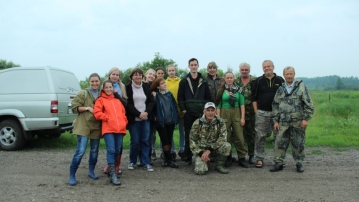 |
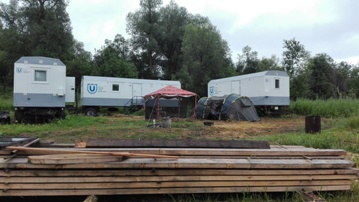 |
| Participants of the school ‘Science as a Form of Life’ | The Kaybasovo station: TSU scientific research base |
The school was organized by the TSU Laboratory for Social and Anthropological Research team, TSU Research Centre for Policy Analysis and Studies of Technologies (PAST-Centre), TSU Bio-Clim-Land Centre of Excellence, and TSU Scientific Research Institute of Biology and Biophysics. This cooperation kick-started thanks to the efforts of LSAR and PAST-Centre research fellows Irina Popravko and Ivan Tchalakov who last year had organized an STS school at the astronomical observatory of Rozhen (Bulgaria). The Tomsk school brought together social scientists (anthropologists, sociologists, and political scientists) and natural scientists (soil and geo-botany scientists, microbiologists, and ecologists). During 10 days, together with the school participants – students from Moscow, Saint Petersburg, and Tomsk – we tried to look into science in the making, both inside and outside of laboratories.
The concept behind the school makes it stand out in a positive light in Russian STS discourse which is, for the most part, centred on theoretical rethinking and translation of different approaches to STS research in Russia. Russian authors rarely publish field research on STS and thus, thanks to its empirical dimension and hands-on activities, this summer school is unique for the country.
It is especially important and symbolic that this event brought together the research teams which had once been closely linked to the Lvov family: Yuriy A. Lvov (1932–1994), a talented scientist and expert on geo-botany and ecology of natural resources, founder of the TSU scientific school of swamp studies, and his wife Eleonora L. Lvova (1940–2014), an inspiration and driving force behind social anthropology in Tomsk. To live up to their great legacy is a great responsibility. And we believe that the Lvovs’ pupils have successfully made the first step in the right direction.
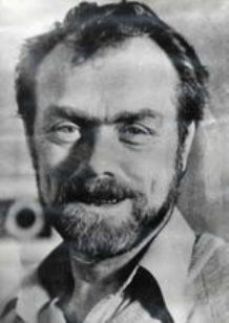 |
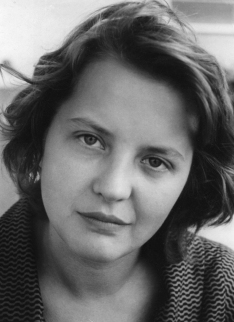 |
| Yuriy A. Lvov | Eleonora L. Lvova |
Chronicles of the School ‘Science as a Form of Life’
Getting prepared for the field: theory and methodology of research on laboratories
During the first two days, under the guidance of lecturers Irina Popravko, Andrey Kuznetsov, and Ivan Tchalakov, students studied approaches to laboratory studies: from Robert Merton’s classical approach to scientific knowledge to Bruno Latour’s actor-network theory.
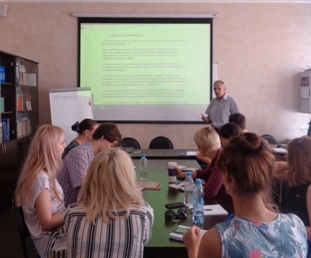 |
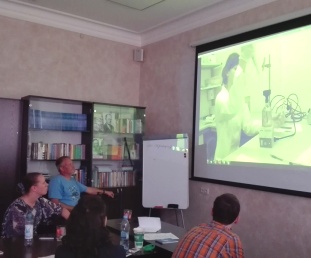 |
| Ivan Tchalakov gives a lecture | Sergey Kirpotin gives a lecture |
Sergey Kirpotin who leads a research group of biologists and is Head of the Centre of Excellence ‘Bio-Clim-Land’, presented a broader context of research done at his centre under the ‘Trans-Siberian Scientific Way’ project and clearly showed that Siberia is of interest to ecologists globally, due to its massive carbon deposits in the marshes, soil, and permafrost — if these are released into the atmosphere, it will greatly add to the global warming.
The theory-related part of the school programme was wrapped up by a tour to Bio-Clim-Land laboratories where the participants could see one of the stages of scientific knowledge production, namely, the ‘transformation’ of samples and data collected in the field to tables and graphs.
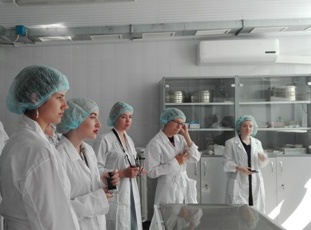 |
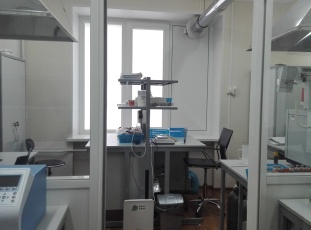 |
|
| Participants at Bio-Clim-Land Lab | Bio-Clim-Land Lab’s interior |
Field stage: ‘Taming’ the Ob River’s floodplain
Fieldwork was, probably, the most exciting part of the school programme: for four days the participants watched scientists work in the floodplain of the river at the Kaybasovo scientific research station 150 km away from Tomsk. Having split into five groups, they, together with fellow soil and geo-botany researchers, ecologists, and microbiologists, were involved in exploring the area and studying the terrain, its plant, and soil profile as well as identifying the number of microorganisms in the river’s water.
As was the case with previous generations of anthropologists, our participants had to learn the language of each member of the scientists’ ‘tribe’ as well as to take part in their daily routine.
Considering the Kaybasovo scientific community as heterogeneous and inhabited by different kinds of actors – natural, technical, human and non-human, and by various hybrids – we studied how science is done, and how the transformation takes place of the ‘wild’ floodplain into texts and descriptions, graphs and tables that are ready for further laboratory analysis, in order to finally appear in scientific publications.
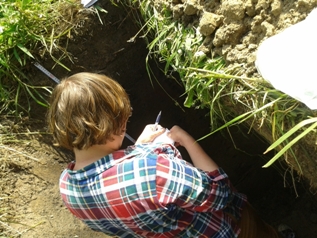 |
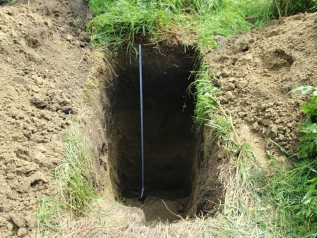 |
| Larisa Kolesnichenko studies soil layer | The transformation |
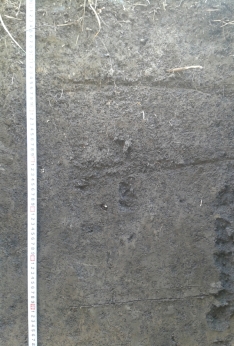 |
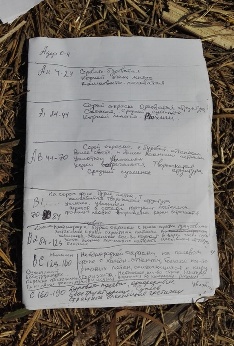 |
| The transformation | The transformation |
Analysis stage: science and society
Having returned from the field with a lot of data, we started to analyze it, considering scientific knowledge as a tool in politics, economics, and in a wider social context.
Our guest expert, Stephen Hilgartner, one of the leading scientists in STS and Evgeniya Popova, Director of TSU PAST-Centre, in their presentations showed what knowledge control regimes exist in natural sciences, how science can be used as a tool in national politics, and how laboratory knowledge is translated to the outside world.
The school ended with presentations of the participants’ projects developed during their fieldwork. All of the research topics proved promising and worthy of being published. The final version of the texts will be presented and discussed at the First Tomsk Anthropological Forum in September.
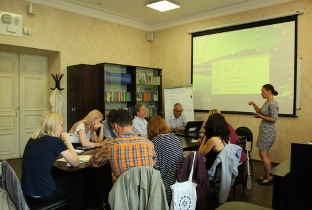 |
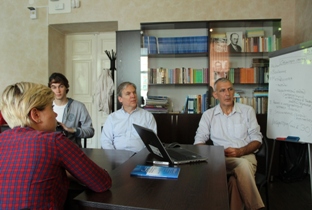 |
Finally, it should be said that it is thanks to the openness and support of the Tomsk biologists’ scientific team that this school has become possible and that we now have plans for continued joint cooperation to develop a new – to both Tomsk and Russia – research area – the anthropology of science.
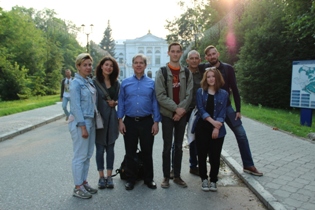 |
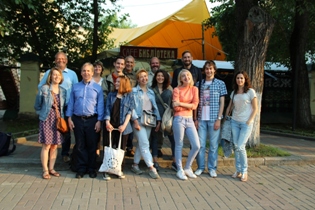 |
The participants’ comments on the school ‘Science as a Form of Life’, on the fieldwork, theoretical training, and the city of Tomsk:
Alexey Voronkov (Higher School of Economics, Moscow):
“The better part of the school’s reader was quite well selected: the texts reflected the school’s empirical focus and disciplinary character and helped us understand how to do fieldwork and what to give our attention to. We also learnt some theoretical fundamentals of ANT. Some of the participants, who had never ever seen any literature on STS before, then turned out to be very well prepared theoretically (…). In the lectures, theoretical and methodological aspects were taught in a balanced and very informative way. I found particularly interesting the lecture of Irina Popravko, although I think it is due to my specific– non-anthropological – background”.
Valentin Solovyov (Tomsk State University, Tomsk):
“The field stage of the school went well in all respects, in terms of both everyday life and scientific experiences. I should say that the living and working conditions at the Kaybasovo station were excellent and allowed us do our research without distraction. It seems that we got along with our fellow researchers in biology and gathered enough data for further study. On the whole, we benefited a lot from the four days spent on the Ob River bank and must have made a good impression on the Kaybasovo station staff.
Lidiya Rakhmanova (State Hermitage Museum, Saint Petersburg)
“There turned out to be a lot of tourist attractions in Tomsk. I enjoyed our walking in the Lagerny Sad and along the central avenue with the Tomsk universities. The ‘2+Ku’ theatre was stunning (…). We received Stephen Hilgartner’s texts to read just before the start of the school, and so I struggled to read both the reader and a Tomsk guide as I had only one and a half days to explore the city”.
…
“I absolutely liked the living conditions we had in the field; where we stayed these were in fact royal. I liked our team of anthropologists; I think that we, as many as we were and with such different backgrounds, made up a very good team!”
Inna Gaiciuc (Moscow State University, Moscow)
“The school ‘Science as a Form of Life’ is a very interesting and useful project. I personally benefited from it in that over a short period of time I could learn a lot and try and apply what I learnt in practice”.
…
“I want to thank the organizers for the unique opportunity of visiting Kaybasovo and getting the feel of taiga not as a tourist but as a member of this lovely region’s research team. The station is situated in a beautiful place. The Ob’s warm waters brought us joy and drew us in even on rainy days. A special ‘thank you’ goes to Natalia Ivanovna as her motherly warm attitude to us touched my heart, and the taste of her fish cutlets is still on my mind.
Siberia is a land of warmth. Not only because the weather was indeed warm, but thanks to its friendly people. They say that Moldova (I.P.’s note: Inna is from Moldova) is a warm land inhabited by hospitable people but I should say that it is true of Siberia in equal measure”.
Olga Makienko (Tomsk State University, Tomsk)
“A special ‘thank you’ for the teachers you selected for the school! Each lecturer explained STS from a different angle, and that allowed us form a comprehensive picture of how this theory works. I particularly enjoyed the lectures of Andrey Kuznetsov and Evgeniya Popova. (…) I hope that you will hold many more such schools in Tomsk in the future for we who participated in it are absolutely delighted with it!”
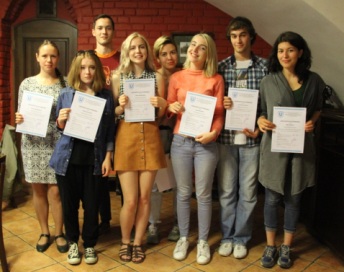 |





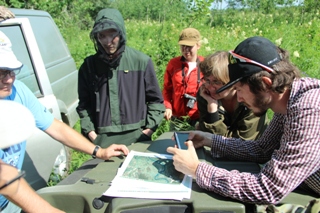
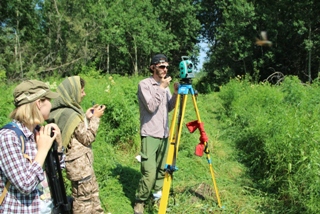
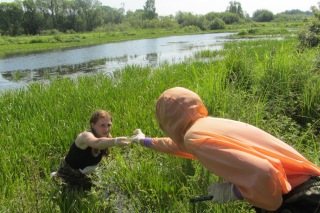
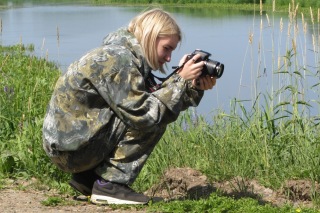
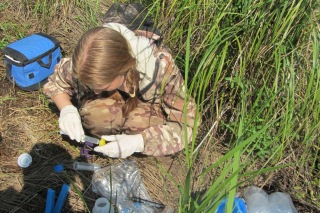
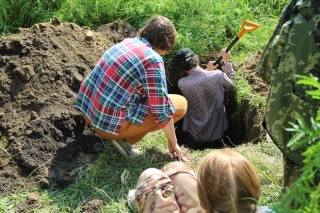
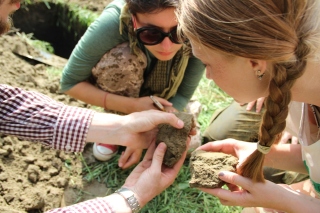
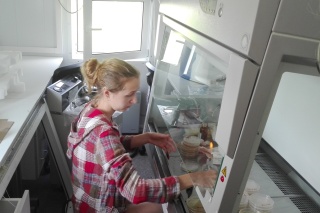
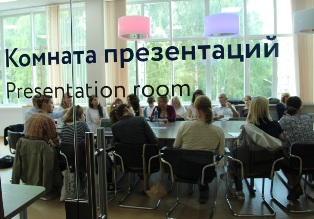
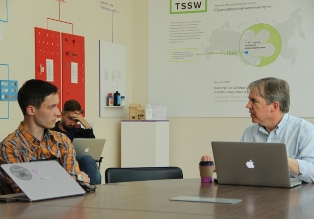
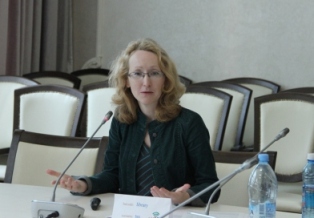
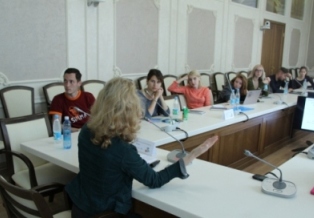
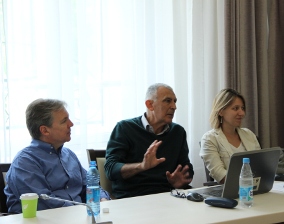
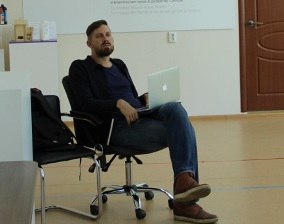
 The project "Man in a Changing World. Identity and Social Adaptation: Past and Present" is funded by the Russian Government
The project "Man in a Changing World. Identity and Social Adaptation: Past and Present" is funded by the Russian Government 